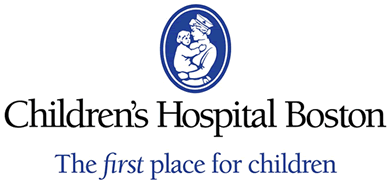A Cooking and Eating Study
| Status: | Recruiting |
|---|---|
| Conditions: | Ovarian Cancer, Women's Studies |
| Therapuetic Areas: | Oncology, Reproductive |
| Healthy: | No |
| Age Range: | 13 - 21 |
| Updated: | 11/23/2013 |
| Start Date: | July 2010 |
| Contact: | Margaret M Lovesky, MPH, RD |
| Email: | margaret.lovesky@childrens.harvard.edu |
| Phone: | 617-355-6777 |
Low-glycemic Load vs. Low-fat Diet for Treating PCOS in Obese Adolescents and Young Adults
Background. The polycystic ovary syndrome (PCOS) is a complex hormonal disorder that
presents in susceptible girls around the time of menarche. Females with PCOS have high
levels of androgens (e.g., testosterone). While cosmetic appearance (excess facial hair and
acne) and menstrual disturbances were once considered the primary concerns, emerging data
indicate that many adolescents and young adults with PCOS are insulin resistant and at
increased risk for metabolic syndrome and diabetes. The majority of females with PCOS are
obese, and excess body fat amplifies the severity of the syndrome.
Dietary intervention is considered an important component of treatment for PCOS. However, a
consensus statement regarding optimal nutrient composition for treating adolescents and
young adults with PCOS has not been published because data are lacking to provide a
foundation for such a statement. Recognizing increased risk for diabetes in patients with
PCOS, many practitioners employ a low-fat diet as prescribed in the Diabetes Prevention
Program (DPP) for weight loss and control of symptoms.
Objective and Hypothesis. The purpose of this research study is to compare different diets
for treating PCOS. We hypothesize that a low-glycemic load diet - designed to lower blood
levels of glucose and insulin - will be more beneficial than a low-fat diet in obese
adolescents and young adults with PCOS.
Design. We propose a 6-month study in which 50 obese females with PCOS (ages 13 to 21 years)
will be assigned to receive one of two dietary treatments. Group assignment will be at
random. One of the treatments will be a low-glycemic load diet, and the other treatment will
be a low-fat diet (modeled after the DPP diet). Participants in both groups will receive
individual nutrition education and dietary counseling with a registered dietitian (clinic
visits, telephone calls) and cooking workshops with a chef. The purpose of the cooking
workshops will be to enhance compliance with diet prescriptions, beyond what can be achieved
by nutrition education and dietary counseling in a conventional clinic setting.
The primary outcome will be bioavailable testosterone (form of testosterone that causes
symptoms of PCOS). Secondary outcomes will include other blood tests to evaluate further
high androgen levels (total testosterone, free testosterone, sex hormone binding globulin,
dehydroepiandrosterone sulfate), clinical signs of high androgen levels (excess facial hair,
acne), glucose tolerance and risk for diabetes (determined by blood sugar and insulin
measurements), risk for cardiovascular disease (based on blood cholesterol and C-reactive
protein levels and blood pressure), body fat percentage and distribution (measured using
state-of-the-art dual energy x-ray absorptiometry and waist circumference), menstrual
cyclicity, and health-related quality of life (evaluated by questionnaire).
Inclusion Criteria:
- Diagnosis of PCOS.
- Aged 13 to 21 years (and living at home with a parent, only for those <18 years old).
- Body mass index (BMI) at or above the 85th percentile.
- Access to a working telephone.
- At least one parent willing and able to participate in the intervention, only for
those <18 years old.
- Residing in predominately one household (no more than one weekend every two weeks in
a secondary household).
- Medical clearance from the physician who is treating PCOS.
Exclusion Criteria:
- Physician diagnosis of a major medical illness or eating disorder.
- Fasting blood glucose at or above 126 mg/dL, indicating diabetes mellitus.
- Chronic use of any medication that may affect study outcomes.
- Current smoking.
- Physical, mental, or cognitive handicaps that prevent participation.
- Sister participating in the study.
We found this trial at
1
site
Children's Hospital - Boston Boston Children's Hospital is a 395-bed comprehensive center for pediatric health...
Click here to add this to my saved trials
